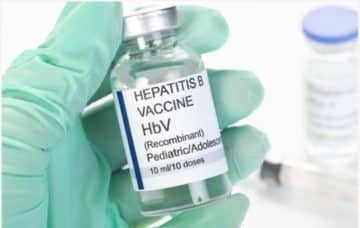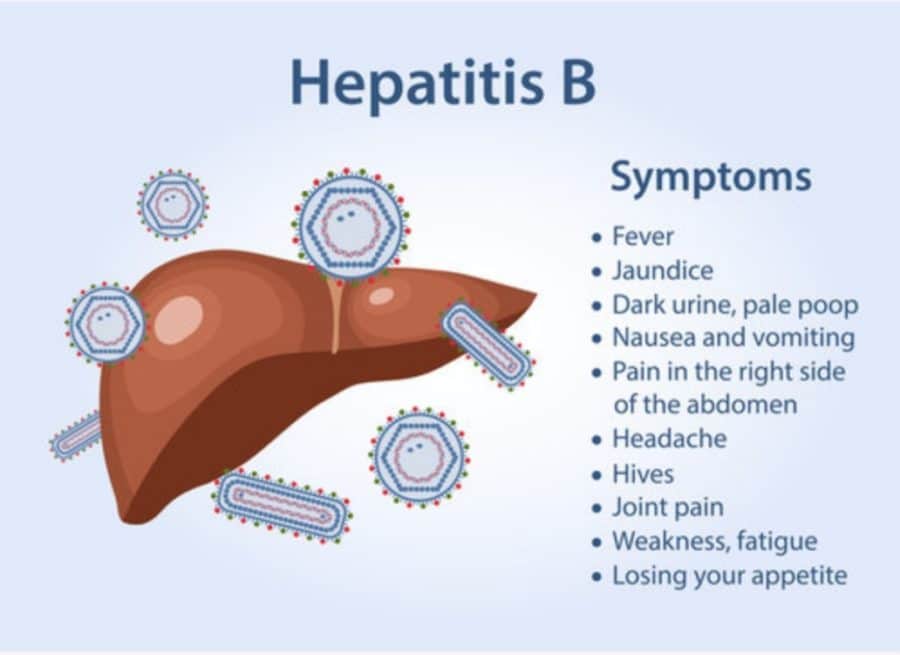Today, we are going to be looking at Hepatitis B and the Cost of Treating Hepatitis B in Nigeria.
What is Hepatitis B?
Hepatitis B is a disease that we generally tend to underestimate its effects and potential lethality; it is a disease that we should not take lightly as it is dangerous. Hepatitis is a disease caused by a virus that affects the liver and if left uncontrolled could harm the liver greatly. It is of three types namely: Hepatitis A, Hepatitis B, and Hepatitis C.
The interesting fact is that there is no definite cure for the hepatitis B virus. It usually goes away by itself in about 4- 8 weeks. Official reports show that More than 9 out of 10 adults who get hepatitis B recover from it with no extra treatment.
However, though, about 1 in 20 people who get hepatitis B as adults become “carriers” of the virus meaning they have a long-lasting hepatitis B infection that they will carry for the rest of their lives. These Carriers possess the capability to pass hepatitis B to other uninfected people. Almost all carriers are contagious and if you are a carrier or live near one, caution is advised because they can spread the hepatitis B virus for the rest of their lives.
These chronic Hepatitis B infections may lead to very serious liver diseases like cirrhosis and cancer of the liver. One in 5 people that possess the chronic strain of the hepatitis B die from it. However, do not panic yet, there are drugs that have been developed to help treat and mitigate the effects of the chronic strain of the hepatitis B virus.
On a general note, babies that happen get hepatitis B during birth will develop the chronic strain, unless the baby is treated right immediately. Please note that these treatments are most effective if they are given to the baby quickly. This is one of the many reasons why antenatal care recommended for pregnant women because in antenatal care, the women are tested for Hepatitis B infection.
Nigeria has a population of over 200 million people and has a Hepatitis B prevalence of 10.1% based on a recent report by the Nigeria HIV/AIDS Indicator and Impact Survey (NAIIS). The NAIIS had a National household-based Survey that assessed the prevalence of HIV and related health indicators including the national prevalence of an additional blood-borne virus: the Hepatitis B virus. As a consequence of this report, it gives us an estimated number of about 20 million Nigerians living with the Hepatitis B virus.

Diagnosis of Hepatitis B in Nigeria
To figure out if you have Hepatitis B, the doctor needs to examine you and look for telltale signs of liver damage, such as yellowed skin or belly pain. Some common tests used to detect the Hepatitis B virus include:
- A Blood test. A Blood test is used to detect signs of the hepatitis B virus in your body and it also serves the function of telling your doctor if it’s acute or chronic. A blood test also determines if you are immune to Hepatitis B.
- A Liver ultrasound. A process called transient elastography is used to the amount of liver damage.
- Liver biopsies. In a liver biopsy, the doctor removes a small sample of your liver to test for liver damage. In the test, a doctor inserts a thin needle through your skin to your liver and removes a tissue sample that he send s the lab to test for liver damage.
Prevention of Further Infection Hepatitis
- Have Safe Sex. If you happen to be sexually active, please inform your partner of your condition and make sure he understands it and talk about the risk of transmitting it to him or her during intercourse. Use a new condom every time you have intercourse, but note that condoms only reduce risk but do not eliminate such said risks.
- Get Your Partner Tested. Anyone that you have had sex with needs to be tested for the Hepatitis B virus. Your partner needs to know their infective status so that they don't infect others with the virus.
- Do not share personal items. Never share any personal care item that you use if you use including needles and syringes. Also never, share razor blades or toothbrushes, as they may carry traces of infected blood.
Treatment of Hepatitis B in Nigeria

More often than not, people diagnosed with a chronic strain of the hepatitis B infection are in need of treatment for the rest of their lives as the virus thrives in them until death. The Treatment helps reduce the risk of liver disease and serves to prevent you from passing the disease to any other person. The most common treatment for the chronic strain of the Hepatitis B Virus:
- Antiviral medications. Antiviral medications including entecavir (Baraclude), tenofovir (Viread), lamivudine (Epivir), adefovir (Hesperia) and telbivudine (Tyzeka) are given to help fight the virus and slow its ability to damage your liver to as lethal extent. You should have a talk with your doctor about which medication is best for you.
- Interferon injections. Interferon alfa-2b (Intron A). This is a synthetic version of a substance produced by the body’s immune system. It is used as a treatment for young people with the chronic strain of the hepatitis B virus who wish to avoid long-term treatment of the disease or for women who might want to get pregnant within a space of a few years, after completing a finite course of therapy. Please note that Interferon should never be used during pregnancy. Some known side effects of the drug include nausea, vomiting, difficulty in breathing and depression.
- A Liver transplant. If unfortunately, your liver has been severely damaged by the virus then a liver transplant might be an option. In a liver transplant, the surgeon removes your damaged liver and replaces it with a healthy liver.
Cost of Treating Hepatitis B in Nigeria
The cost for treating Hepatitis B virus in Nigeria starts from a price of #30,000 upwards, it is to show the decadence of the medical realm in Nigeria in being unable to provide cheap affordable health care.

Isreal olabanji a dental assistant and public health professionals and has years of experience in assisting the dentist with all sorts of dental issues.
We regularly post timely and trustworthy medical information and news on Fitness, Dental care, Recipes, Child health, obstetrics, and more.
The content is intended to augment, not replace, information provided by your clinician. It is not intended nor implied to be a substitute for professional medical advice. Reading this information does not create or replace a doctor-patient relationship or consultation. If required, please contact your doctor or other health care provider to assist you to interpret any of this information, or in applying the information to your individual needs.


